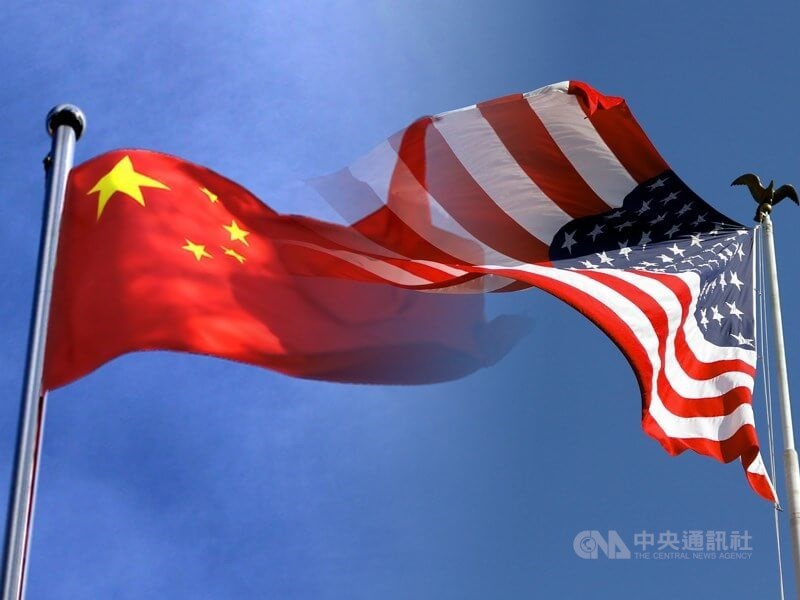Taipei, April 2 (CNA) The stated aim of China’s military drills around Taiwan is to deter “Taiwan independence” forces, but their real purpose may be to test the United States’ response and strategic bottom line ahead of a potential Xi-Trump summit, scholars told CNA.
The People’s Liberation Army’s (PLA) Eastern Theater Command announced Tuesday that it had launched a new round of exercises around Taiwan using the army, navy, air and rocket forces to “close in” on Taiwan in “multiple directions.”
China’s Taiwan Affairs Office (TAO) said Tuesday the drills were intended as “a stern warning” to “Taiwan independence” separatist forces, and would serve as “a resolute punishment” for what it called the “reckless provocations to seek independence” by the administration of President Lai Ching-te (賴清德).
The PLA drills continued Wednesday, with Eastern Theater Command spokesperson Shi Yi (施毅) announcing in the morning that the command would launch exercises code-named “Strait Thunder-2025A” in the central and southern areas of the Taiwan Strait.
Lin Ying-yu (林穎佑), who teaches at Tamkang University’s Graduate Institute of International Affairs and Strategic Studies, told CNA on Tuesday that the PLA exercises, coming just after U.S. Secretary of Defense Pete Hegseth’s visit to Japan, were actually aimed at the U.S.
During his first trip to Japan after taking office, Hegseth met with Japanese Defense Minister Gen Nakatani in Tokyo and discussed security issues across the Strait.
“The ministers took note of activities by the PLA including the military situation around Taiwan, and emphasized the importance of peace and stability across the Taiwan Strait,” an English-language press release issued by Japan’s Ministry of Defense read.
Despite its rhetoric of “opposing Taiwan independence” as the reason for launching the drills, China’s decision to start them right after Hegseth’s departure was more about testing the U.S.’ bottom line and response regarding security issues across the Strait, Lin said.
Beijing also wanted to understand U.S. President Donald Trump’s stance on the issues, with the aim of gauging the U.S. strategic position ahead of a potential summit between Trump and Chinese President Xi Jinping (習近平), Lin said.
Echoing Lin, Su Tzu-yun (蘇紫雲), director of the Division of Defense Strategy and Resources at the Taiwan military-funded Institute for National Defense and Security Research, said the drills were aimed at expressing political dissatisfaction toward Washington.
Su said the dissatisfaction stemmed from a report by The Washington Post last Saturday, which said an internal guidance memo signed by Hegseth has reoriented the U.S. military to focus on deterring a potential seizure of Taiwan by China.
But while the PLA’s surprise drills were primarily intended as a message to the U.S., they may also serve as internal propaganda in China, Su said.
He felt that they could be seen as a response to Lai’s March 13 speech, in which he designated China a “foreign adversary” and announced 17 strategies to counter Beijing’s coercion of Taiwan.
Speaking in the same vein, Chieh Chung (揭仲), a research fellow at the Association of Strategic Foresight, said the Lai administration was directly named in Tuesday’s statements and in videos on the latest round of drills by both the TAO and the PLA Eastern Theater Command.
Such direct references to the Lai administration showed that the drills could be seen as a response to Lai’s speech and the strategies he announced, Chieh said.
He also noted that the TAO statement Tuesday focused entirely on criticizing the Lai administration, without mentioning the U.S.
The criticism and the drills can thus be seen as signs that Beijing may be using Lai’s remarks as a pretext to raise tensions across the Strait ahead of a potential Xi-Trump summit, in a bid to gain leverage or create opportunities for negotiation with the Trump administration, Chieh said.
